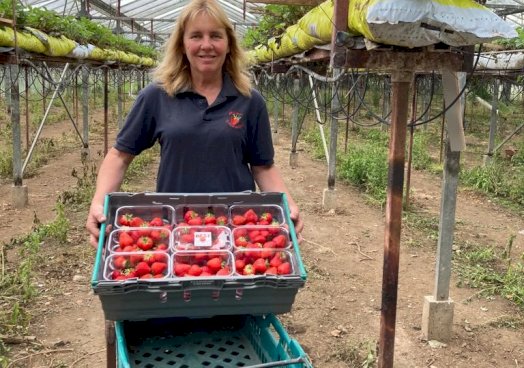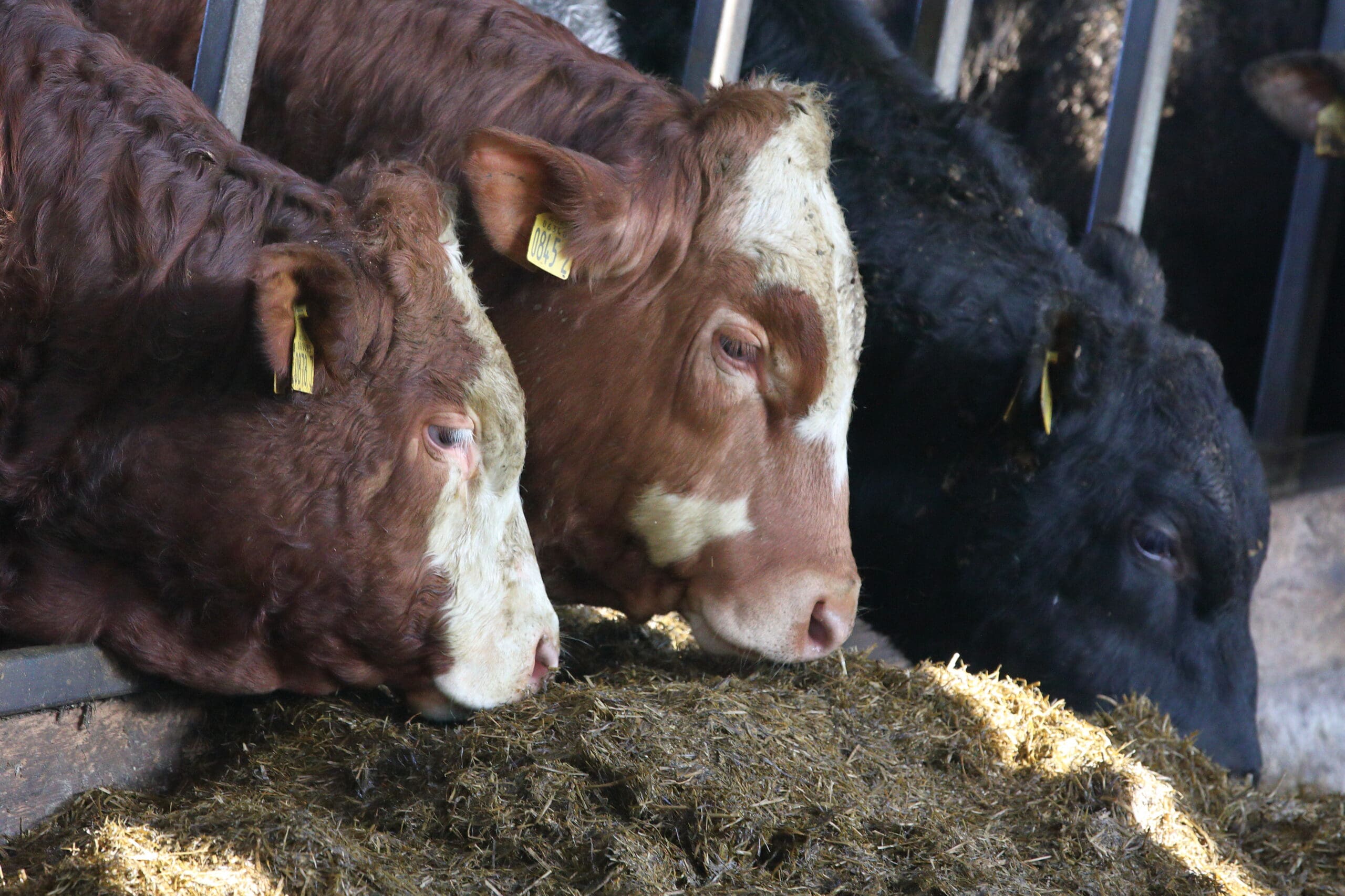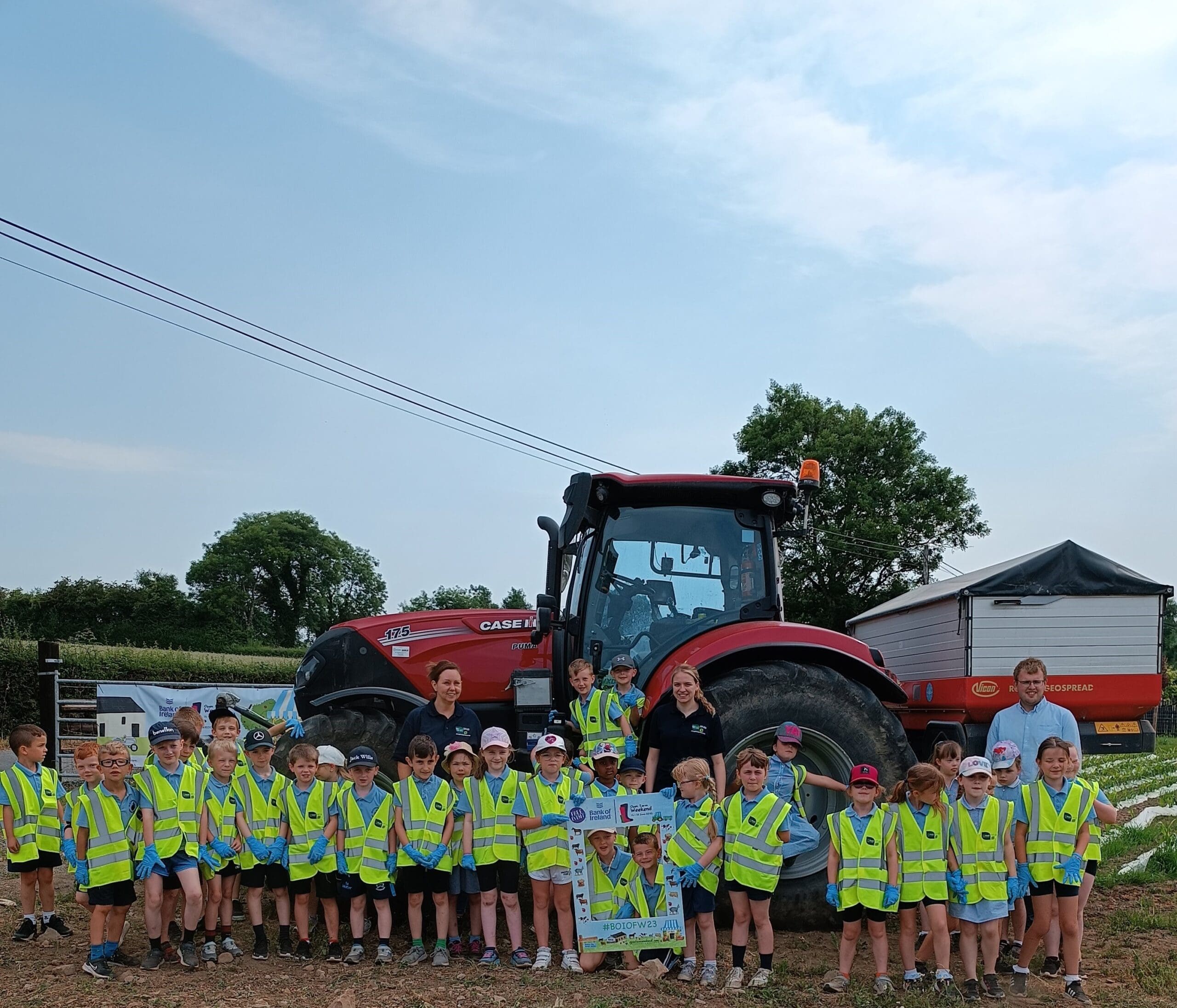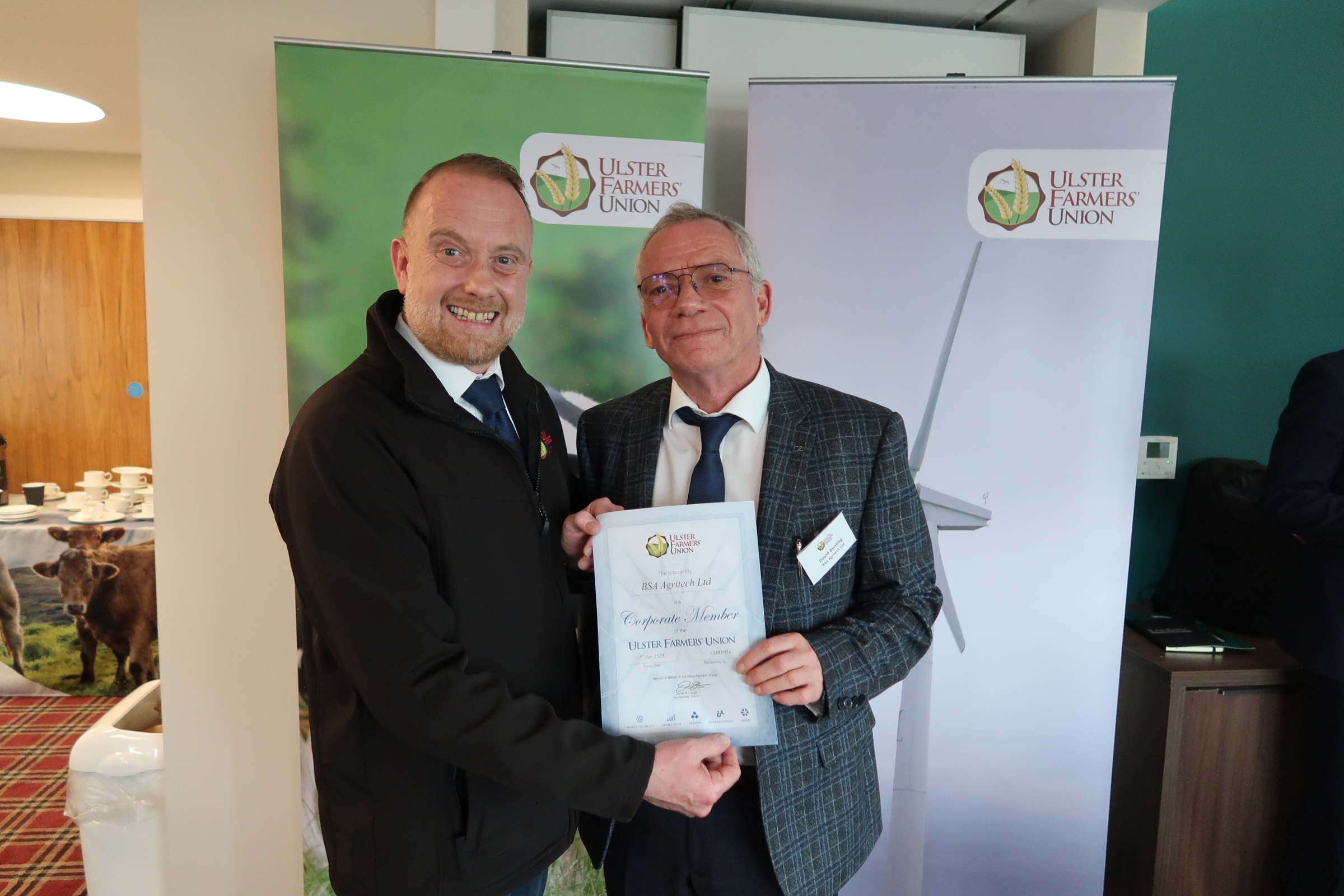
Name: Jo Best short for Joanne.
Place you call home: Ballinderry, Co. Antrim.
Occupation: Full time farmer. I started farming properly in 1988 when I was 23.
My week could involve taking cattle/lambs to the abattoir, buying cattle at a mart, gathering up sheep to dose, delivering strawberries, driving a tractor, doing the VAT, collecting parts. Whatever it is I love it and I feel grateful to have the opportunity to farm every day!
Farming commodity: Poultry, beef, sheep and strawberry production.
How did you become involved in farming?
I first had the idea that I wanted to be a farmer when I was five years old and was taken on holiday by my parents to a wee cottage in Shropshire, close to mid Wales. The owners of the cottage were farmers, and I had my first experiences of feeding sheep, pigs and making hay – I was smitten. From then, being a farmer remained my aim in life throughout school. The only snag was I lived in Beckenham close to London and my dad worked in Fleet Street, so no fields for me!
When in sixth form, I looked into agricultural colleges, there were fewer back then. My parents took me up and down the country for interviews and as long as I took a year out on a farm before starting, I was accepted to go.
I decided to opt for the Welsh Agricultural College as it had more beef/sheep farms in that area. I loved my precollege year and remember learning to drive tractors and reverse a trailer which has stood me in good stead for the past 30 years! Going to agricultural college I met my husband during Freshers week.
My husband like me was not from a farm but he lived in the country and had two wee fields. We had to make our own business. Firstly, we started up contracting doing round baling and wrapping. We clocked up 35,000 bales a year and managed to buy more tractors and implements to keep us busy all year round. The advantages of contracting were getting to know every wee road in the area and the farmers. If we didn’t have a break down, it was a good day!
Eventually after 10 years of contracting, we realised our babysitter was earning more than us (we had four children by now) and we reluctantly stopped. In 1994 we moved to a small farm of 30 acres in Ballinderry. We put up two henhouses and started to lift eggs every morning and that hasn’t stopped! The small farm we moved to had some glasshouses on it so we started a strawberry enterprise and began to supply Marks and Spencer and local shops.
In 1998, my husband started a full-time job working for DAERA to give us a reliable income. One of our children has Down’s Syndrome and so I was the lucky one who stayed at home and became the farmer and looked after the children
We have now put up a new hen house for 16,000 birds, built up our sheep to 200 ewes and 20 cattle, and have our strawberry business. I’m not denying it has been a massive amount of work all our lives with my husband helping me before and after his job every day.
What personal characteristics did you develop from agriculture?
I soon learnt that you must have ever lasting optimism; you sometimes have to fail to grow; a sense of humour; and endless supplies of resilience as tomorrow will be a better day!
Life lesson you learnt from farming: Farming is a continuous life lesson. It’s important to enjoy the highs and not to dwell on the negatives and move on. Always enjoy the moment, especially bringing new life into the world. First day of lambing, I’m beaming from ear to ear (end of lambing I’m just as happy but shattered).
What do you enjoy most about the farming lifestyle?
I love the farming lifestyle because every day is different. The lifestyle is totally unpredictable. I also love working in all weathers and realise how lucky I am not to be in an office and attached to a screen.
I feel passionate about farming, the way of life that it is, the wildlife, the countryside and feel lucky after being born into an urban upbringing, I was able to escape.
Describe a farmer in three words: Committed; forward thinking and resourceful
What would you like the public to know about NI farming?
I would like the public to know and appreciate the blood, sweat and tears that really do go into producing high quality food and the ongoing sacrifices farmers continuously make. The public in NI should buy NI produce, supporting the local economy, local food production – our farmers our look after the environment.
If you could give farmers/farming families/ farming community one piece of advice what would it be?
To all women farming out there, whatever your role, be it big or small, you are equally important as we are a cog in a wheel, and one can’t work well without the other. It is a team effort, and don’t be hard on yourself when things go wrong, just do your best to learn from it and never give up!
What would you say to others who are considering a career in the agri industry?
I would encourage anyone to give it a go, whatever their background as long as they are super keen and not afraid of hard work. We never have a lie in, and our days can be 15 or 16 hours and totally unpredictable. Despite all that it is a great way of life for a family. I constantly told my children as they grew up that they are so lucky to have space around them.
What are your hopes for the future of Northern Ireland’s agriculture industry?
I hope costs will stop rising uncontrollably so we can plan sensibly for the future. I hope that smaller farms can remain viable, not just the huge ones. It’s important that the Northern Ireland public buy local produce to support the local economy, keep down air miles and thus protecting the environment.
I also strongly believe that it would be better if subsidies were spread more evenly across all sectors. Most of all, I hope that future generations can continue to farm in a sustainable way and enjoy this unique way of life as much as I do!
It’s important that the Northern Ireland public buy local produce to support the local economy, keep down air miles and thus protecting the environment.




